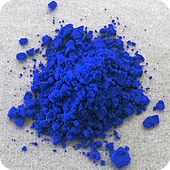 Every once in a while you run across a piece of software that’s so elegant and well done it makes you smile from ear to ear. Orba, the new free puzzle game from Kieffer Bros. is such an application. Released for the iPhone and iPod touch in late November, Orba is a great example of casual gaming in the spirit of Bejeweled or Tetris.
Every once in a while you run across a piece of software that’s so elegant and well done it makes you smile from ear to ear. Orba, the new free puzzle game from Kieffer Bros. is such an application. Released for the iPhone and iPod touch in late November, Orba is a great example of casual gaming in the spirit of Bejeweled or Tetris.
I love games that can be explained in 25 words or less and Orba’s just such a game. Clear as much of the board as possible by tapping chains of three or more same-colored orbs. The bigger the chain, the more you score. The premise is simple, but after playing just a few games it quickly becomes apparent tap mashing won’t get you very far. Each game starts with only 3 colored orbs shown on the board, so creating long chains of like colors is relatively easy. As you progress, more and more colors are introduced and it becomes quite difficult to clear enough of the board to be able to continue. When no chains can be cleared, the game is over.
As is the case with much of the software that lives on my iPhone, I first discovered Orba via a tweet from a friend, Jason Snell of Macworld. Since I know all too well how important it is to get the word out about great iPhone apps, I’m only too happy to recommend Orba to all of you iPhone and iPod touch users out there.
The game’s user interface is drool worthy. Everything about the game’s design just seems right from the user interaction and the help screens to the friendly “Hello Again.” message that greets you every time you begin. The UI is minimal, but elegant and does a wonderful job of not getting in the way as you play while still looking freakin’ cool. About the only thing I probably would have done differently are some of the sounds. They too are minimal, almost to a point of being non-existent. Despite the audio nit pick, the designers at Kieffer Bros have a well-earned reputation for beautiful software and their work on Orba is no exception.
As a causal gamer, I was surprised and delighted to find that Orba was being offered on the App Store absolutely free. As a fellow developer of iPhone titles, I would have gladly paid upwards of $4.99 for this wonderful piece of art masquerading as a casual game. Since my parents always taught me never to look a gift horse in the mouth, I won’t say any more regarding the decision to give away Orba except to say “Thank you” to the folks behind the orbs. I’ve already gotten many hours of enjoyment out of the download, and that will most likely continue for some time.
I love that I can play this game for a few minutes or hours on end, pause and come back at will. Since there is no time constraint, the only pressure to achieve higher scores are the ones you impose on yourself. Orba doesn’t have online scoreboards or social network boasting, but it doesn’t have to. It is what it is. If you’re looking for a well designed, friendly and casual game for your iPhone, Orba just might be the game for you. Head on over to the App Store, download a copy and let me know when you break the million point mark.
UPDATE: Of course on the very day I decide to publish this post, Orba goes from free to 99¢. I’m actually glad they made it paid since it’s worth 4-5x what they are asking for. You can still try the first 12 levels for free by downloading Orba lite so no harm, no foul.

 The New York Times
The New York Times  Back in August I
Back in August I